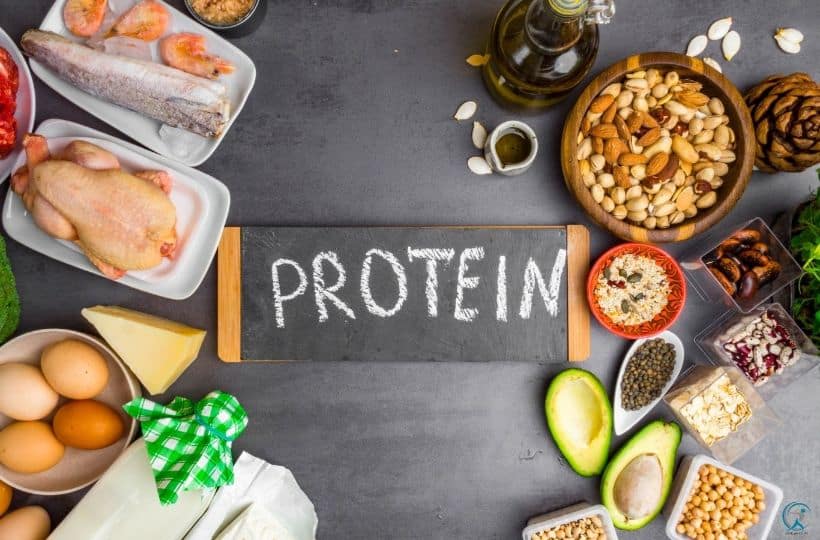The Protein diet plan for weight loss in 7 days is an effective way to lose weight fast. Discover what foods are best for losing fat quickly and easily!
Are you looking for a protein diet plan for weight loss? If yes, then you’ve come to the right place. This article will provide you with helpful information regarding the benefits of consuming proteins.
Proteins are essential nutrients that play a vital role in our bodies. They are required to grow and develop cells, muscles, bones, skin, hair, nails, etc. The human body cannot produce them on its own. Therefore, they should be consumed through food or supplements.
Protein is also known as the building block of life. It helps build muscle mass and repair tissues. It also aids in digestion and metabolism. In addition, it plays a significant role in maintaining energy levels throughout the day.
Protein diet plan
The protein diet has many forms, but they all have two things in common: protein and a lack of carbs. If you follow a high-protein diet, it may be impossible for you to eat enough fiber and healthy fats. You may also have other problems, such as bad breath or constipation. If you replace most of the carbs with protein, there is less room for fruits, vegetables, and whole grains in your diet. What’s more, high-protein diets are not healthy for people with kidney disease because your body can get rid of excess protein only through the kidneys.
In order to achieve weight loss, you will need to create a calorie deficit. A protein diet plan can be a great way to help you do this. Protein helps you feel fuller for longer, so you’re less likely to snack between meals. Plus, it takes more energy to digest protein than carbs or fat, meaning you’ll burn more calories overall. This diet plan is for seven days and includes breakfast, lunch, and dinner recipes and a snack option.
Protein diet plan for weight loss in 7 days (Version 1)
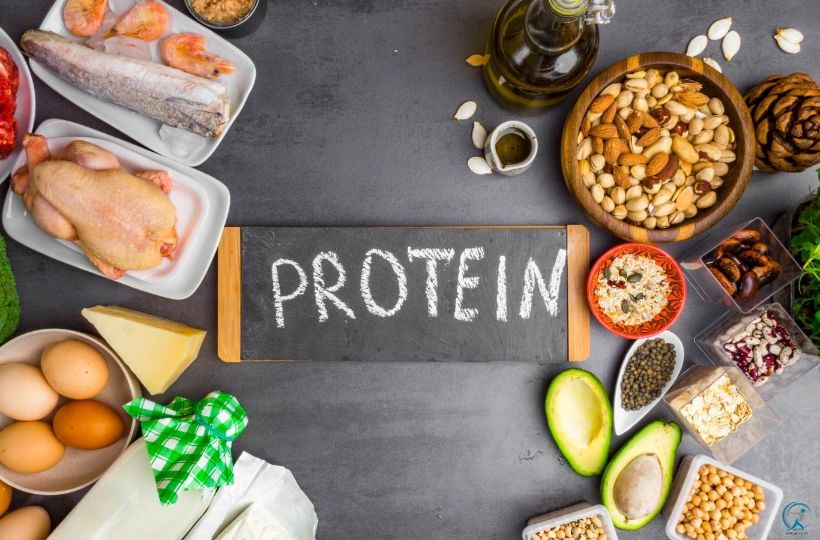
A protein diet plan for weight loss in 7 days will help you lose weight and improve your health, follow the few rules!
Day 1
Breakfast: One hard-boiled egg and one piece of fruit
Lunch: Half a cup of tuna salad with diced cucumber
Dinner: One cup of roasted Brussels sprouts with grilled chicken
Snack: One ounce of almonds
Day 2
Breakfast: Omelet made with two eggs and one ounce of cheese
Lunch: One cup of black beans with diced avocado
Dinner: One cup of roasted broccoli and grilled salmon
Snack: One cup of Greek yogurt
Day 3
Breakfast: Two scrambled eggs with spinach and feta cheese
Lunch: Four ounces of grilled chicken breast with one cup of roasted sweet potatoes
Dinner: One cup of roasted asparagus with shrimp
Snack: One ounce of dark chocolate
Day 4
Breakfast: One cup of oatmeal with one tablespoon of honey
Lunch: Turkey and Swiss cheese sandwich on whole-wheat bread
Dinner: One cup of lentil soup
Snack: Half a cup of cottage cheese
Day 5
Breakfast: Two hard-boiled eggs
Lunch: One cup of vegetable soup
Dinner: One cup of roasted cauliflower with grilled chicken
Snack: One medium apple
Day 6
Breakfast: Omelet made with three eggs and one ounce of cheese
Lunch: Four ounces of roasted turkey with one cup of brown rice
Dinner: One cup of steamed asparagus
Snack: One ounce of pistachios
Day 7
Breakfast: One cup of Greek yogurt with one tablespoon of honey
Lunch: Turkey and avocado sandwich on whole-wheat bread
Dinner: One cup of Quinoa with grilled chicken
Snack: Half a cup of hummus and one sliced cucumber
Protein diet plan for weight loss in 7 days (Version 2)
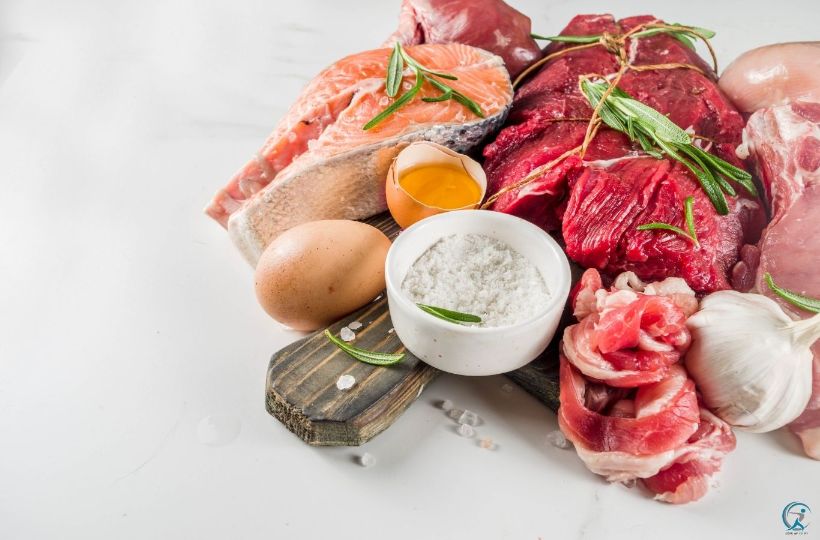
Day 1
Breakfast: 50gms of porridge oats (cooked with water), two slices of brown bread, one boiled egg.
Mid-morning snack: One glass of milk, one bowl of fruits.
Lunch: One bowl of dal, one bowl of cabbage sabzi, five chapatis, one bowl of curd.
Evening snacks: 50gms of sprouts with lemon juice and pepper dash.
Dinner: 100gms boneless chicken with tomato soup.
Day 2
Breakfast: 50gms oats (cooked with water), one egg white omelet, two slices of brown bread.
Mid-morning snack: A bowl full of mixed fruits.
Lunch: One plate brown rice, 100gm grilled chicken tikka salad, half a bowl of green salad with olive oil dressing.
Evening snacks: Two brown bread cheese sandwiches with 20gm butter and chutney and a glass of milk.
Dinner: One bowl of vegetable dalia khichdi and a glass of warm milk.
Day 3
Breakfast: One bowl of oats porridge, one boiled egg, two slices of brown bread.
Mid-morning snack: A glass of milk and a bowl of fruits.
Lunch: 100gms cottage cheese (paneer), one bowl of green vegetables, two chapatis, half a bowl of curd.
Evening snacks: A handful of roasted channa with a dash of lemon juice and black pepper powder.
Dinner: One bowl vegetable soup, three to four multigrain crackers.
Day 4
Breakfast: 50gms oats (cooked with water), one egg white omelet, two slices of brown bread.
Mid-morning snack: A bowl full of mixed fruits.
Lunch: One plate brown rice, 100gm grilled chicken tikka salad, half a bowl of green salad with olive oil dressing.
Evening snacks: Two brown bread cheese sandwiches with 20gm butter and chutney and a glass of milk.
Dinner: One bowl of vegetable dalia khichdi and a glass of warm milk.
Day 5
Breakfast: Two slices of brown bread with an egg-white omelet one glass of milk.
Mid-morning snack: A glass of milk and a bowl of mixed fruits.
Lunch: 100gms grilled fish with a plate of steamed vegetables and green salad with olive oil dressing.
Evening snacks: A glass of milk and fresh fruit juice without sugar.
Dinner: 100gms boneless chicken cooked in a tandoori style or boiled chicken with one glass of milk.
Day 6
Breakfast: 50gms oats (cooked with water), two egg white omelet, two slices of brown bread.
Mid-morning snack: A bowl full of mixed fruits.
Lunch: One plate brown rice, 100gm grilled chicken tikka salad, half a bowl of green salad with olive oil dressing.
Evening snacks: Two brown bread cheese sandwiches with 20gm butter and chutney and a glass of milk.
Dinner: Two chapatis with half bowl vegetable sabzi, one boiled egg.
Day 7
Breakfast: One bowl of vegetable dalia khichdi and a glass of warm milk.
Mid-morning snack: A bowl full of mixed fruits.
Lunch: One plate brown rice, 100gm grilled chicken tikka salad, half a bowl of green salad with olive oil dressing.
Evening snacks: Two brown bread cheese sandwiches with 20gm butter and chutney and a glass of milk.
Dinner: A glass of warm milk with 10 gms almonds and walnuts.
As you can see, this protein diet plan includes healthy and delicious options for every meal. Following either plan will help you healthily lose weight.
What are some of the foods on a high-protein diet?
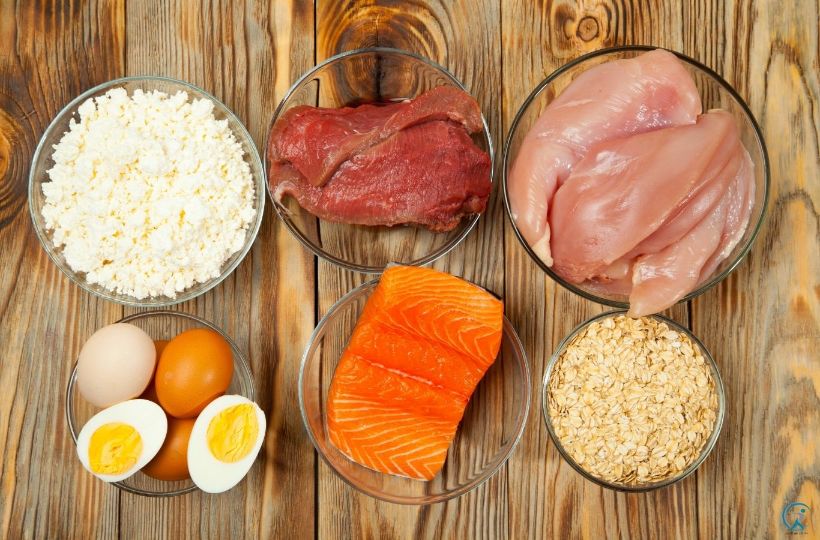
Not all types of proteins are equally beneficial. Some are more effective than others. Here’s how to choose the best type of protein:
Lean Protein
These are found in meat, fish, eggs, dairy products, beans, nuts, seeds, soybeans, and other plant-based foods. They help boost your immune system, improve eyesight, increase bone density, and prevent cancer.
Fatty Proteins – Healthy fat
These include egg whites, milk, cheese, yogurt, butter, and oils. They can lower cholesterol levels and protect against heart disease.
Carbohydrates
These are found in fruits, vegetables, grains, legumes, and starchy roots. They help maintain healthy blood sugar and promote satiety.
Dairy Products
These are made from milk and cream. They contain calcium, phosphorous, potassium, vitamin D, riboflavin, niacin, and zinc. They can reduce the risk of osteoporosis and strengthen teeth.
Soy Protein
This is made from soybeans. It contains high amounts of lecithin, iron, B vitamins, thiamine, magnesium, phosphorus, copper, manganese, zinc, selenium, and fiber. It can aid in weight loss and reduce the risk of osteoporosis.
Whey Protein
This is derived from milk. It has higher protein content than any other type of protein. It provides the body with amino acids necessary for muscle tissue growth.
Egg Whites
These are made from egg yolk. They have a high amount of choline, biotin, folate, lutein, and omega 3 fatty acid. They can help fight inflammation, promote brain health, and prevent cardiovascular diseases.
Brown Rice Protein
This is extracted from brown rice. It is rich in dietary fibers and antioxidants. It can regulate appetite, reduce fat accumulation, and prevent diabetes.
Pea Protein
This comes from peas. It is considered one of the most nutritionally dense sources of protein. It helps in fighting obesity, reducing the risk of cancer, and promoting good vision.
Hemp Protein
This is made by crushing hemp seed. It contains high amounts of omega 3 fatty acids, minerals, and polyunsaturated fats.
Spirulina Protein
This is made using blue-green algae. It is rich in beta carotene, chlorophyll, and minerals like iron, zinc, and iodine. It promotes detoxification and improves immunity.
Bone Meal
This is used to make fertilizer. It is rich in calcium and phosphorus. It can enhance the absorption of these minerals into plants.
Olive oil
This is extracted from olives. It contains monounsaturated fats that can reduce bad cholesterol and triglycerides. It can also help you lose weight.
Fish Oil
This is made from fish. It contains essential Omega 3 fatty acids necessary for brain development, skin, eyesight, and hair.
Sweet potato powder
This is made from sweet potatoes. It contains beta carotene, vitamin A, and folic acid. It is an excellent source of energy.
Milk Powder
This is made using skimmed milk or low-fat milk. It is rich in nutrients like calcium, vitamin D, and protein. It can be added to smoothies and shakes.
Peanut butter
This is made from roasted peanuts. It contains tryptophan, an amino acid that relaxes the mind. Peanuts are also a good source of unsaturated fats.
Veggies
They include carrots, broccoli, spinach, tomatoes, cauliflower, cabbage, asparagus, peppers, cucumbers, mushrooms, and onions. Vegetables provide your body with vitamins, minerals, and fiber.
Avoid
- Processed meats, like hot dogs and bacon. Instead, choose lean cuts of beef, chicken, fish, turkey, lamb, and pork. Also, try to include eggs, nuts, seeds, beans, tofu, and low-fat dairy products.
- Bread, pasta, potatoes, rice, or sweets.
- Sugary foods
Do I need to count calories when following a high-protein diet plan?
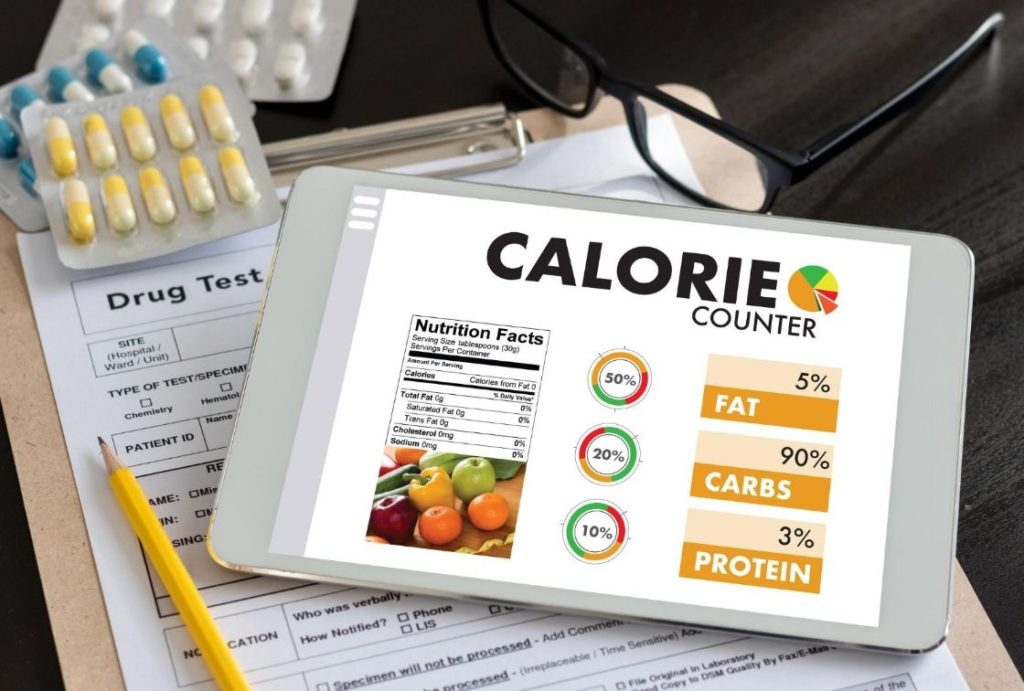
Yes, you do. A calorie-counting diet is a low-calorie diet that consumes fewer calories than your daily requirements. When you start eating more food, you must compensate by decreasing the calories consumed each day. However, if you decrease the total number of calories you eat, your metabolism slows down, making losing weight difficult.
A high-protein diet may cause you to feel hungry throughout the day, even though you ate enough calories. To overcome this problem, you can add an extra snack in the mid-morning and late afternoon.
Can I drink alcohol while following a high-protein plan?
Yes, as long as you don’t exceed recommended levels of intake. Alcoholic beverages contain carbohydrates, so you can still consume them if you stick to a high-protein diet. However, keep in mind that drinking too much alcohol can lead to dehydration, nausea, headaches, and vomiting.
How does a high-protein diet affect my digestion system?
This depends on how much protein you eat. If you eat less than 40 grams of protein per meal, it won’t affect your digestive system. But, if you eat more than 70 grams of protein per meal (which is equivalent to about three ounces), then it might slow down your digestion process.
What happens if I follow a high-protein diet for extended periods of time?
If you follow a high-protein plan for two weeks, it will not harm your body. However, if you continue to eat this way for longer periods, you may experience side effects. For example, it could increase your chances of developing kidney stones, constipation, and heartburn.
Does a high-protein diet work better than other diets?
According to several studies, people who follow a high-protein diet lose more weight than those who follow a low-carbohydrate diet. In addition, they have greater improvements in their blood sugar levels.
Is there any scientific evidence showing that a high-protein diet helps me lose weight?
Yes, according to several studies, consuming a lot of protein over a short period causes your body to burn fat. This is because proteins are broken down into amino acids converted into glucose. As a result, your body uses these glucose molecules to produce energy instead of storing them as fat cells.
However, remember that a high-protein approach doesn’t always mean a healthy one. You should only follow this type of diet if you already have a medical condition that requires restricting your carbohydrate consumption. Otherwise, you may end up gaining weight due to the increased amount of calories you consume.
FAQ
To lose weight in 7 days, it is important to consume fewer calories than what you burn each day. The best way to do this is through healthy meals with lots of vegetables and lean protein.
The protein diet plan for weight loss in 7 days helps fat loss because it provides an abundance of high-quality proteins that are essential for building lean muscle mass.
Yes, it is possible to lose weight on a protein-only diet. However, if you are trying to lose weight quickly, it may be more effective to combine a high-protein diet with regular exercise.
A high protein diet for weight loss can help you lose more fat than a regular diet. However, it’s important to note that this kind of diet isn’t recommended if you are trying to maintain your current body weight.
A high-protein diet will help you lose weight faster than a regular diet. However, it can also cause some health issues such as kidney stones.
As a veteran fitness technology innovator and the founder of GearUpToFit.com, Alex Papaioannou stands at the intersection of health science and artificial intelligence. With over a decade of specialized experience in digital wellness solutions, he’s transforming how people approach their fitness journey through data-driven methodologies.
